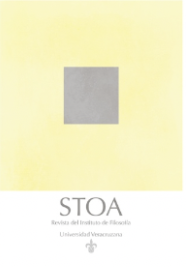Abstract
There is a tendency to translate the German word Wirklichkeit by the word reality, along with its equivalents in other languages, and although there are other ways of translating this term, in Husserl's Ideas I it has been translated as such. In this work, Husserl explains the precise meaning of the term, which distinguishes it from Realität, a term also translated as reality and its equivalents. This produces an ambiguity that also appears in the German language (where Wirklichkeit and Realität are commonly understood as synonyms), and this ambiguity is described by Heidegger as a "misinterpretation" of the terms. In this paper, I will review the context of the terminological appearance of these concepts in the work of Master Eckhart and their relationship with Albertus Magnus, in order to establish criteria that allow the evaluation of the technical sense of these terms and the reasons why they are ambiguously understood. I will argue that, in contexts of terminological precision such as Husserl's work, the choice of the word reality, as a translation of Wirklichkeit, is not optimal and the ambiguity it produces is unnecessary.
STOA is a biannual publication edited by the Institute of Philosophy of the Universidad Veracruzana, Tuxpan, No. 29, Frac. Veracruz, C.P. 91020, Xalapa, Ver., Tel. 8154285, http://www.uv.mx/filosofia. Responsible editor: Jesús Turiso Sebastián. Exclusive Use Rights Reservation No. 04-2008-121012511200-203, granted by the Copyright Reservation Directorate of the National Institute of Copyright of the Secretariat of Public Education, ISSN: 2007-1868. Responsible for the last modification of this issue: Jesús Turiso Sebastián, Tuxpan, No. 29, Frac. Veracruz, C.P. 91020, date of last modification August 5, 2011. Distribution and digital support by the Academic Software Development Department of the Universidad Veracruzana.
The opinions expressed by the authors do not necessarily reflect the position of the editor of the publication. Reproduction by any means of the texts published in this journal may be done as long as the source is cited, including the name of the author, the name and number of the journal, and its electronic address. For more information write to revistastoa@uv.mx.
Revista Stoa is a completely free publication, with no cost for processing or receiving articles and free access.
This work is under a Creative Commons Attribution-NonCommercial-ShareAlike 4.0 International license.

